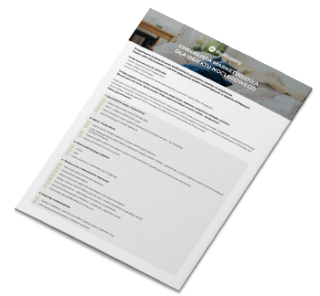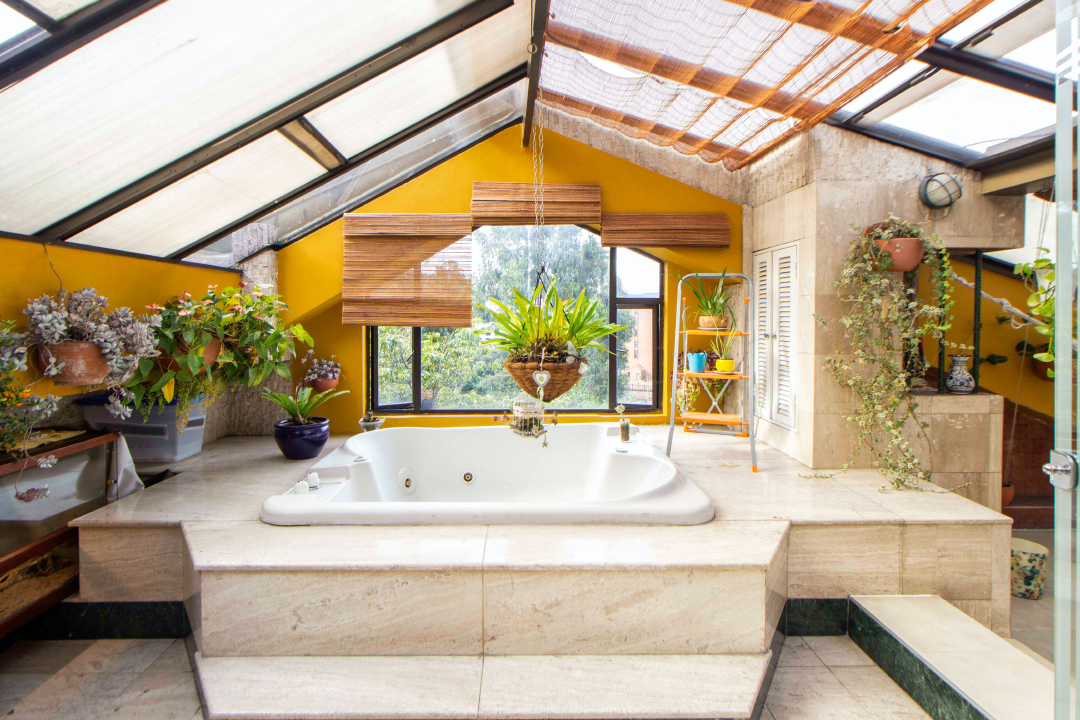
How to Set Prices for Accommodation Rentals?
Proper pricing in accommodation rentals is a crucial aspect that determines the competitiveness and profitability of any business in the tourism industry. A well-chosen price not only attracts guests but also ensures optimal use of the property and maximizes profits. A good business plan and the ability to flexibly adjust prices to current market conditions become essential tools for owners and managers of accommodation facilities.
This article is timely, as creating a price list can be a significant challenge for inexperienced entrepreneurs. Setting prices requires considering many factors, such as location, seasonality, standard and type of property, competition, and operational costs. Each of these elements significantly impacts the final price, which must be attractive to potential guests while being profitable for the owner. Improper pricing can lead to serious consequences, such as market collapse, loss of customers, or even insolvency.
In this article, we will discuss in detail which factors to consider when setting prices and what strategies can help optimize pricing policies. It is also essential to differentiate between creating a price list for a completely new offering and price changes, which should also occur regularly as the market changes. We will also look at the risks associated with improper pricing and suggest how to avoid them. This way, every accommodation owner can effectively manage their prices, ensuring financial stability and long-term success in the tourism industry.

Key Pricing Strategies for New Short-Term Rental Offers
Setting prices for new short-term rental offers entering the market is a complex process that requires special attention. New offers that are just appearing on the market need to set prices accurately to effectively attract the first guests and build their position among competitors.
One of the key challenges, to avoid using the word “problems,” is the lack of market history. New offers do not yet have reviews or ratings, making it challenging to assess their value in the eyes of potential guests. To compensate for this lack of reputation, it is necessary to set competitive prices that will be attractive to the first customers. The price must be low enough to entice guests to try the new offer but high enough to cover maintenance costs and ensure profit.
Analyzing local competition is an indispensable element of price setting. New offers must closely monitor the prices of similar offers in the same location. Understanding what prices competing properties offer allows setting an attractive yet realistic price that will not only attract guests but also enable profitability. Tools for monitoring competitors’ prices can significantly facilitate this process by automating data collection and analysis.
Price flexibility is another key element of the pricing strategy for new offers. In the initial phase of market entry, dynamic price adjustments to demand are necessary. Promotions, discounts for first reservations, and flexible price changes can help quickly build a customer base and increase occupancy. New offers should be ready to respond quickly to changing market conditions to maximize their revenue.
Seasonality and local events also have a significant impact on pricing. High season, holiday periods, vacations, and local events such as concerts or festivals are times when demand for short-term rentals increases. New offers should plan higher prices for these periods in advance to take full advantage of the increased interest. On the other hand, during the low season, it is worth considering lowering prices to maintain appropriate occupancy.
Setting prices for new short-term rental offers entering the market requires careful balancing between price attractiveness and profitability. This process involves analyzing competition, flexibly adjusting prices to demand, considering seasonality, and using promotions and discounts. This way, new offers can effectively attract the first guests, build their reputation, and ensure long-term success in the short-term rental market.

Factors Influencing Rental Prices
Location Location is one of the most important factors influencing accommodation rental prices in the tourism industry. Properties located in attractive tourist destinations, close to beaches, city centers, or popular tourist attractions, can command higher prices. Additionally, different districts in the same town can significantly vary in rental prices due to their prestige, transport accessibility, parking availability, and safety, such as monitoring.
Seasonality Seasonality significantly impacts demand and prices in many businesses, including short-term rentals. The high season, typically characterized by a large influx of tourists, usually features higher prices, which tourists are accustomed to. In Poland, the high season generally includes the summer months and holiday periods and long weekends. The low season, with less interest, is a time when it is worth considering lowering prices to maintain steady occupancy.
Type and Standard of Property While we don’t necessarily mean the star rating like in hotels, the type and standard of the offered property also significantly affect the price we can ask from guests. Properties offering additional amenities such as electric car chargers, swimming pools, air conditioning, or modern security systems can command higher prices. It is important that the price reflects the standard and equipment provided by the property. It is also worth comparing the offer with similar ones in the area.
Competition Competition analysis is an indispensable element of price setting. Monitoring the prices of similar properties in the area allows adjusting your offer to be competitive. Various tools are available for monitoring competitors’ prices, automating this process and allowing real-time reactions to changes, even seasonal ones. Operational Costs In price calculation, operational costs, including fixed and variable costs such as property maintenance, utilities, cleaning, insurance, and depreciation, cannot be overlooked. The rental price must cover all these costs and still ensure a profit.

Risks Associated with Improper Pricing
Improper pricing can lead to a collapse in the rental market. High competition, changes in tourists’ preferences, or unforeseen events can significantly affect demand. It is important to constantly monitor the market and react to changing conditions.
Underpricing Setting prices too low can bring short-term benefits in the form of higher occupancy, but in the long run, it can negatively impact profitability and the perception of the property. Guests often associate low prices with poor service quality. Financial capacity for potential renovations and upgrades of such properties is also insufficient.
Overpricing Prices that are too high can deter potential customers and lead to low occupancy. It is important that the price reflects the offered value and is competitive in the market. If you believe that your offer can be significantly higher than the competition, clearly define the reasons and distinguish yourself from similar offers.

Pricing Strategies for Weekends and Holidays
It is definitely profitable to continuously adjust prices based on changing demand. The price list for renting your property does not have to be rigid and set a year in advance. The Covid-19 pandemic proved that it is necessary to react practically hour by hour but remain in business. Here are some examples of when prices should change.
Weekend Prices Short trips are increasingly popular among active families. Therefore, weekends are periods of higher demand, and prices on these days can be higher than on weekdays. Analyzing local weekend demand allows for better price adjustments and increased profits.
Holiday and Vacation Prices Holidays and vacation periods are definitely “harvest time” for short-term rental property owners. This is when the demand for accommodation significantly increases. It is worth planning higher prices for these periods in advance to maximize the increased interest and take advantage of “early booking,” which tourists planning their trips months in advance prefer.
Special Events Local events such as concerts, festivals, exhibitions, or sports events can significantly impact demand for accommodation. In such cases, it is worth adjusting prices in response to increased interest, maximizing revenue.
Setting prices in accommodation rentals is a process requiring analysis of many factors and flexibility in decision-making. Key aspects include monitoring the market, reacting to changing conditions, and listening to customer needs. Properly set prices allow maintaining competitiveness, maximizing profits, and providing high-quality services. Regularly adjusting the pricing strategy to current market realities is the foundation of success in the short-term accommodation rental industry.



